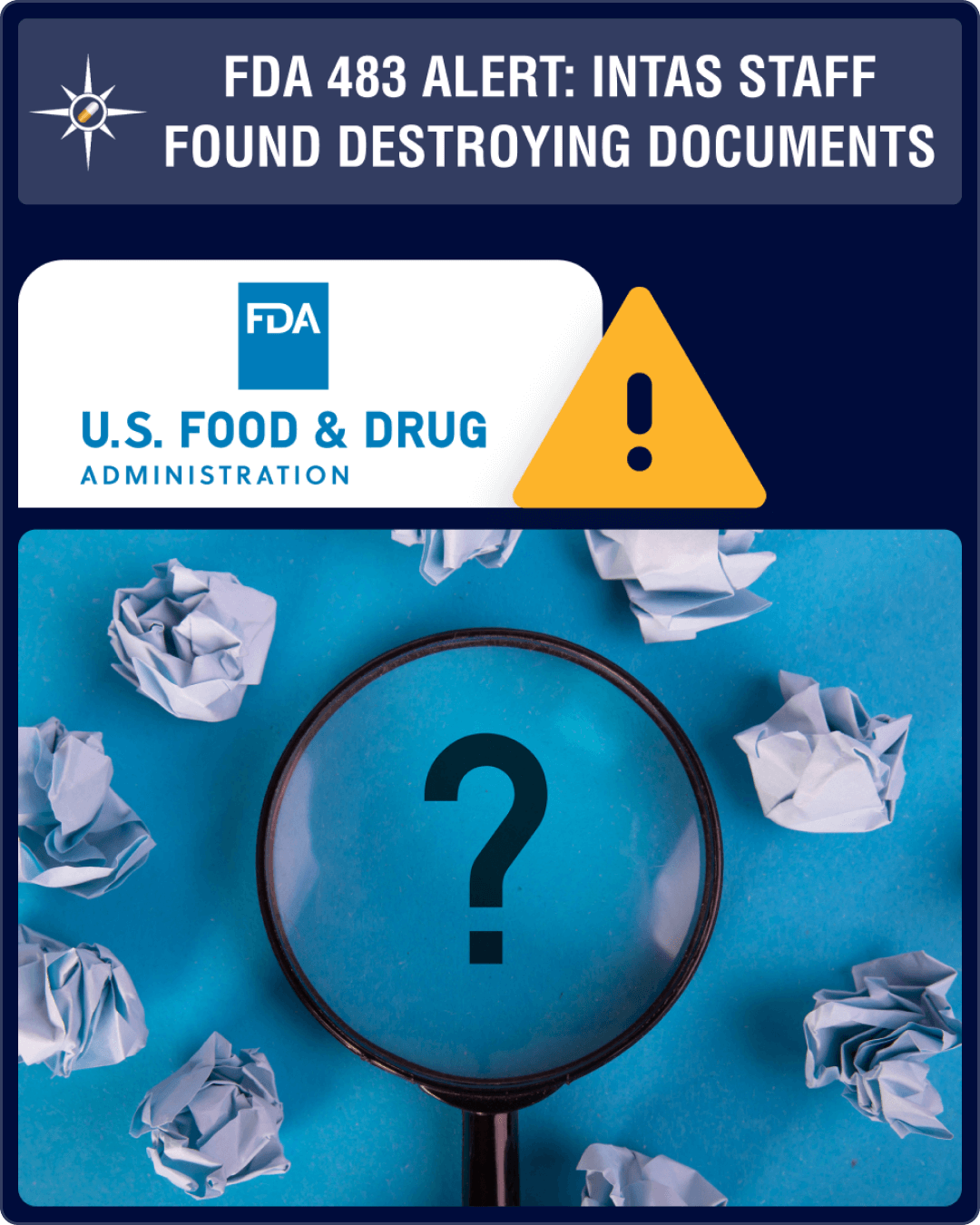
By PharmaCompass
2023-01-13
Impressions: 10165
Since the US Food and Drug Administration (FDA) resumed physical inspections of manufacturing units outside of the US last year, several regulatory violations have come to the fore. At the forefront are Indian companies with the agency highlighting violations of good manufacturing practices (GMP) at several Indian plants of leading drugmakers such as Sun Pharmaceuticals, Lupin Laboratories, Glenmark and Piramal Pharma.
This week, there was news of violations at Intas Pharmaceuticals, a top-10 Indian generic pharmaceutical company founded in 1977 with about US$ 2.3 billion in revenues. According to Forbes, Intas operates 15 factories, of which 10 are in India and the rest in Europe and Mexico.
Three FDA regulators had inspected Intas’ plant in Ahmedabad (Gujarat, India) from November 22 to December 2. In the 36-page long, highly redacted Form 483, the agency has highlighted several serious data integrity issues, including the tearing of documents by Intas employees.
The Intas Form 483 is reminiscent of a high-profile case like Ranbaxy (2008) wherein the FDA had found falsification of data and had to invoke its Application Integrity Policy (AIP) against its Paonta Sahib facility in Himachal Pradesh. Even companies like Wockhardt (2013) have had serious data integrity issues in the past.
PharmaCompass went through the Form 483 issued to Intas and has highlighted its key findings.
A truck full of transparent plastic bags containing shredded documents
On November 22, 2022, the first day of the FDA inspection at Intas’ drug manufacturing site, investigators “found a truck full of transparent plastic bags containing shredded documents and black plastic bags mostly containing documents torn randomly into pieces”. The FDA also found “a large black plastic bag that was hidden under the staircase” filled with torn pieces of disposed GMP documents. When the FDA opened the trash bag, a very strong smell of chemicals spread across the area. The documents found inside this trash bag were wet.
The quality control management tried to explain the chemical smell by saying that a quality control (QC) employee spilled something on the floor, which was “cleaned up using tissue papers” which were then discarded. However, detailed questioning exposed that when the FDA investigators were on their initial walkthrough inspection, an employee in the QC laboratory had rushed to tear apart balance printouts along with Auto Titrator spectrums and had thrown the torn pieces into a small trash container. Later, he threw acid solution inside the same trash in an attempt to destroy the evidence of the tests that he was working on (that had shown failing quality specifications).
The FDA investigators went ahead and put “together some of the torn pieces of documents with the help” of Intas’ employees and found that the torn pieces pertained to products commercialized in the US market.
Lack of consistency in recording quality control information
While trying to explain their activities, Intas’ Associate Executive Vice President of Corporate Quality and Compliance told investigators that “there is no consistency among the QC employees in terms of recording of information” and “some QC employees may enter this information whereas others may not”, leaving no trace of the exact number of lots tested.
Intas’ quality control also invalidated failed results without a scientific root cause. They also failed to make the necessary upgrades they had committed to years ago in order to assure data integrity.
In addition to this, the environmental monitoring samples were not counted accurately as analysts had either under reported or inaccurately calculated results to ensure that samples passed and met the acceptance criteria. Similar observations were found in chromatography testing. Moreover, there was an absence of data to demonstrate that the manufacturing process was “in a state of control” to ensure batch-to-batch consistency.Our view
Since the start of the pandemic in early 2020, there has been a significant reduction in FDA inspections. This resulted in a proportionate reduction in regulatory action against drug manufacturers around the world. However, with the resumption of international travel, news of regulatory action has started making headlines again.
Historically, Indian drug manufacturers have received a high proportion of FDA’s warning letters. For instance, in 2015, 50 percent of warning letters sent out by the FDA had been issued to Indian pharmaceutical companies. That trend continues — in 2022, FDA issued 31 Form 483s, and 15 of them were to Indian drugmakers.
With supply chain challenges increasing in China, and most developed economies adopting a China+1 strategy, the opportunities before the Indian pharmaceutical industry are immense. We hope that Indian drugmakers are quick in cleaning up their act in order to capitalize on those opportunities.The PharmaCompass Newsletter – Sign Up, Stay Ahead
Feedback, help us to improve. Click here
Image Credit : Crumpled paper balls with magnifying glass over question mark by Marco Verch Professional Photographer license under CC BY 2.0
“ The article is based on the information available in public and which the author believes to be true. The author is not disseminating any information, which the author believes or knows, is confidential or in conflict with the privacy of any person. The views expressed or information supplied through this article is mere opinion and observation of the author. The author does not intend to defame, insult or, cause loss or damage to anyone, in any manner, through this article.”







